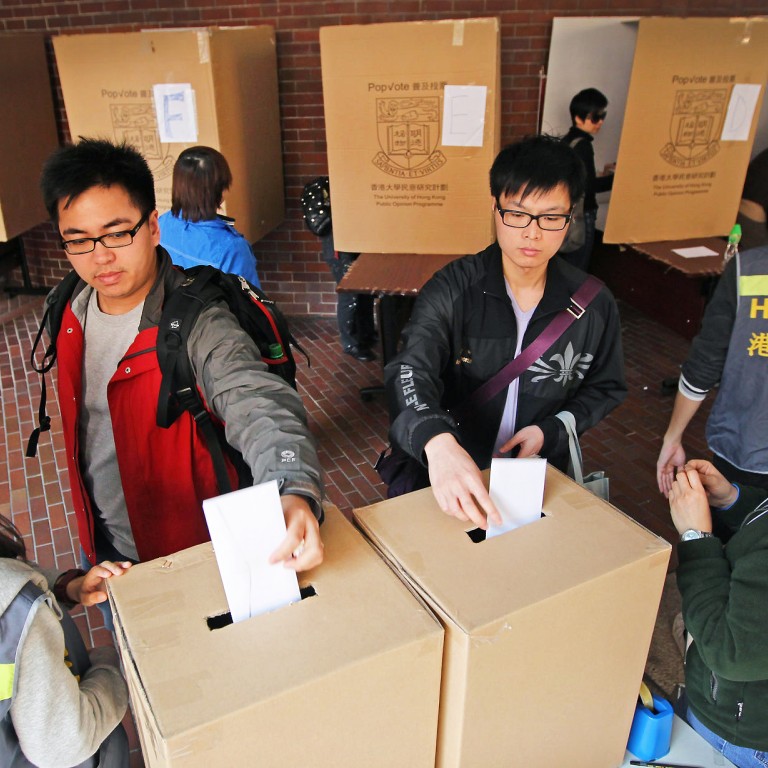
Hongkongers get a voice with electronic voting platform
Universities join forces to develop an electronic platform for local people to express their views on pressing social and political issues
Hongkongers could turn their voices into votes on contentious issues following the completion of a new civil referendum platform next month.
And the city's political reform is most likely to be the first topic for an electronic ballot.
The Occupy Central campaign plans to run a small-scale voting exercise by the end of the year to draw up a list of "democratic principles" that the campaign would then pursue.
The PopVote project, jointly developed by the University of Hong Kong and Polytechnic University, could involve up to 800,000 votes in each exercise.
The developers say the new system is better equipped against online traffic jams and overseas malicious attacks than its predecessor, which was compromised by hackers in March last year.
Jazz Ma, an information technology manager at HKU's public opinion programme, said the HK$800,000 computer platform was at its final stage of testing.
Each time the system was run it would cost HK$200,000, and this would be paid by those wishing to use it.
"The political background of applicants will not be taken into consideration," Ma said. "The PopVote is a politically neutral tool to gauge public opinions."
He said it would take about one month from vetting an application to launching the voting exercise.
In each exercise, the ballots could be cast through apps on mobile devices, the university's website and at five regional polling stations in the city, Ma added.
Apart from the Occupy Central plan, the Alliance for True Democracy, comprising 26 pan-democratic lawmakers, has also indicated it could run a civil referendum exercise to test support for the government's proposal in the summer of next year.
The universities' initiative comes 18 months after some 220,000 people picked their ideal chief executive in a mock ballot in March last year, ahead of the real election and in the absence of universal suffrage. The citywide exercise was run by HKU's public opinion programme.
The mock ballot met with hacking attacks, which disrupted the polling stations' connections with the central servers. That resulted in long queues at the stations, and some were forced to switch to paper ballots and extend the voting hours.
"In this enhanced system we have drawn up contingency plans," Ma said.
"We will employ cloud servers to handle sudden surges in web traffic. Computers at the polling station can operate in 'offline mode' without connecting to the central server. We may also block overseas access to our system to prevent attacks."
Voters for the civil referendum will have to provide their ID card number and phone number for authentication. They will also have to send a text message to the server to confirm their identity.
Ma conceded there were difficulties in estimating the turnout.
"So far 800,000 votes is the limit we can take under the constraint of our resources," he said.
The turnout in the mock ballot last year was four times the original estimate.
In the Legislative Council election last year, about 1.8 million registered voters, or 52.5 per cent, cast their votes.
